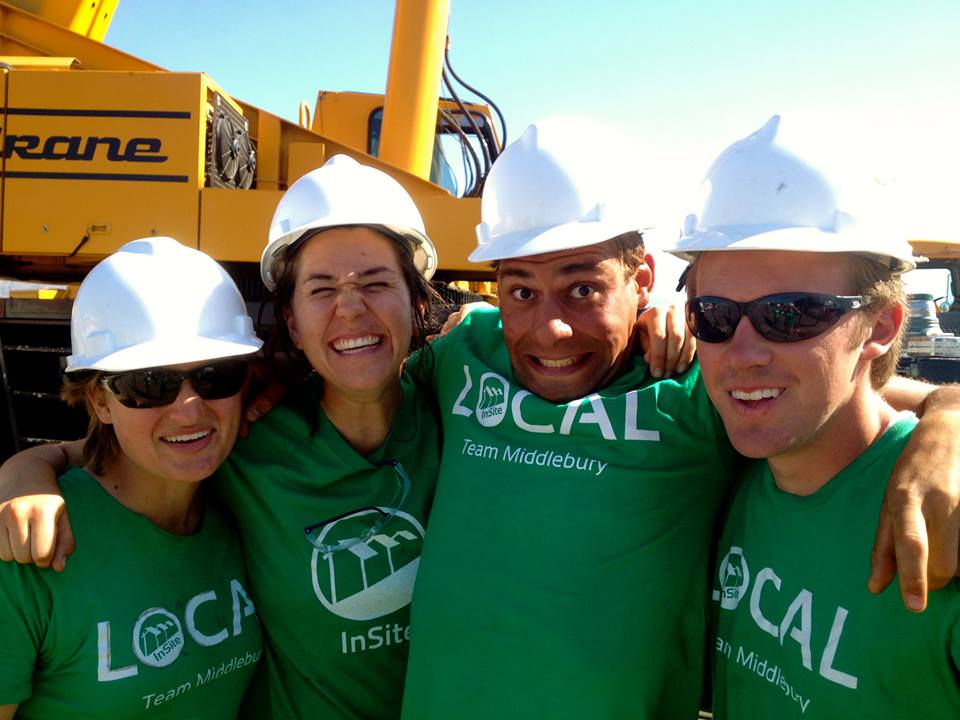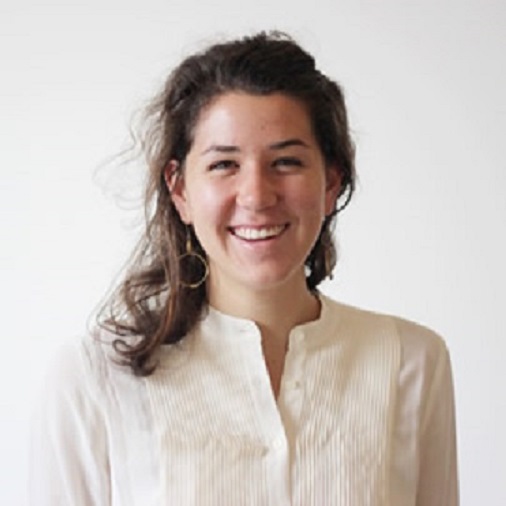Solar Decathlon Alum Goes From Coordinating One Efficient Building to Many
Thursday, October 23, 2014By Irene Ying
As a project coordinator for building management software company Lucid Design Group, Cordelia Newbury works with customers to reduce their energy use. And although she now coordinates the energy efficiency of tens of buildings at a time, her career in energy-efficient spaces began with one-house projects—on Middlebury College’s U.S. Department of Energy Solar Decathlon 2011 and Solar Decathlon 2013 teams.
“After working on the construction of the Self-Reliance house for Solar Decathlon 2011, I became more curious about architecture and building efficiency movements and was hooked,” Newbury explains. “So I incorporated building efficiency into my academic work and continued on with Solar Decathlon 2013.”
Newbury served as team manager of Middlebury’s InSite house for Solar Decathlon 2013. She describes her role as “acting as a central resource for the team to connect students with each other and with external resources such as contractors to keep us on track.” This meant that she did a little bit of everything: from buying groceries and acting as travel agent for 70 team members to performing late-night construction, hosting fundraising meetings, and coordinating design teams.

Cordelia Newbury, second from left, shares a light moment with Middlebury College Solar Decathlon 2013 teammates (from left) Ari Lattanzi, Marcel Rodgers, and Jack Kerby-Miller. Newbury credits her Solar Decathlon experience with helping her become an energy-efficiency project coordinator for a building management software company. (Photo courtesy of Cordelia Newbury.)
Newbury didn’t just learn skills by working on the Solar Decathlon team; she also gained professional connections through her experience. During the two-year Solar Decathlon 2013 project, the team had extensive contact with administrative departments at Middlebury as well as local professionals who consulted on InSite. To Newbury and her team, these contacts were more than donors and extra pairs of hands. They also became mentors, friends, and eventually a professional network.
“The amount of responsibility that we had on Solar Decathlon is not often available through internships, and having administrators and contractors get to know me and my teammates created strong relationships that guided me to my job with Lucid,” she says.

Cordelia Newbury, who served as Middlebury College’s Solar Decathlon 2013 team manager, says the Solar Decathlon provides visitors an opportunity to interact with environmentally responsive architecture and think about how they can contribute to more sustainable spaces and lifestyles. (Photo courtesy of Cordelia Newbury.)
But most important of all, Newbury says, she found a new way of thinking about sustainable spaces and lifestyles, which drives her career today. The Solar Decathlon, she says, taught her that it’s possible to create attractive spaces that integrate sustainable building into everyday life without sacrificing comfort or beauty.
“The Solar Decathlon is on the one hand a platform to exhibit energy-efficient houses, but it is also an opportunity to spread powerful ideas to architects, builders, engineers, students, adults, or anyone who sees themselves occupying a constructed space,” she says. “I don’t think that anyone could leave Decathlete Way without remembering at least one idea that he or she could use to work toward a more sustainable lifestyle.”
Irene Ying is a member of the U.S. Department of Energy Solar Decathlon communications team.
Tags: Middlebury College, Profiles, Solar Decathlon, Solar Decathlon 2011, Solar Decathlon 2013
